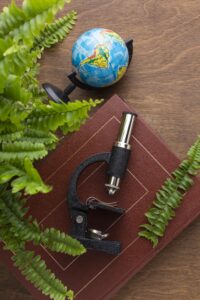Research by Chubut Fellow Reveals the Biotechnological Potential of Patagonian Fungi

Mariano Aquino durante el análisis de especies fúngicas nativas en el marco de su tesis doctoral en Ciencias Naturales.
Mariano Aquino, a provincial research fellow, recently presented his doctoral thesis in Natural Sciences at the National University of La Plata (UNLP), which received the highest academic distinction. His dissertation, titled “Uncovering the Biotechnological Potential of Fungi in Andean Patagonian Forests,” explores how native fungi in the region can offer innovative solutions in key areas such as biotechnology, renewable energy, and sustainable agriculture. Aquino’s work opens new horizons for harnessing these microorganisms, especially in the context of the biodiversity of Patagonian forests.
Aquino’s thesis focuses on fungi associated with native tree species such as Nothofagus dombeyi (Coihue) and Nothofagus pumilio (Lenga), which grow in the forests of Patagonia. These fungi are not only vital for the region’s ecological balance but also possess significant biotechnological potential.
One of the most notable aspects of his research was the identification of oleaginous fungi capable of accumulating lipids. These lipids can be used to produce biofuels, offering a cleaner and more sustainable alternative to fossil fuels. Additionally, Aquino explored fungi with antagonistic properties capable of naturally inhibiting agricultural pathogens. This discovery positions Patagonian fungi as strategic allies for improving agricultural practices without relying on synthetic chemicals.
His research also revealed that certain fungi can be used for waste biodegradation—an essential component in creating a circular economy. These fungi’s ability to process organic waste presents an opportunity to transform waste management into a more efficient and environmentally friendly system.
Key Contributions to Biological Control and Renewable Energy Production
A central component of Aquino’s research involved the characterization of fungi found in samples of Nothofagus dombeyi. Through the isolation of 92 fungal species, he identified organisms capable of inhibiting specific pathogens such as Huntiella decorticans, a known cause of disease in trees. This finding highlights the importance of native fungi in biological pest control and forest ecosystem preservation.
The study also examined fungi from the Umbelopsis genus, known for their ability to synthesize lipids and lipolytic enzymes. These traits are highly valuable to industry, as they could be applied in biofuel production and other renewable-source products. The ability of these fungi to produce lipolytic enzymes that break down fats illustrates their potential role in the development of cleaner and more sustainable technologies.
Another significant finding was the analysis of fungi from the Ophiostoma genus, recognized for their capacity to transform wood compounds in Nothofagus trees. Aquino identified species such as Ophiostoma grandicarpum and Ophiostoma patagonicum, which demonstrated notable enzymatic stability at low temperatures—an essential feature for industrial processes requiring precise thermal control.
Implications for the Sustainable Development of the Region
Mariano Aquino emphasized the relevance of his research for the Chubut region and its potential to contribute to both environmental and economic solutions. The support received from the Provincial Government through its co-funded scholarship program with CONICET was instrumental in carrying out a project that not only generates scientific knowledge but also aims to apply it for the betterment of local communities.
Aquino highlighted that the provincial support was key to envisioning practical applications for his research in the region, such as the use of fungi to foster more sustainable agriculture, enhance waste management practices, and develop renewable energy sources. Upon completing his thesis, he stressed that his work contributed not only to understanding the biodiversity of Andean Patagonian forests but also to reinforcing the idea that these natural resources can play a vital role in building a more sustainable development model.
In this regard, Aquino’s research stands as a clear example of how local scientific knowledge—backed by public policy initiatives such as the Chubut Government’s fellowship programs—can have a direct impact on environmental conservation and economic development, promoting technological innovation rooted in regional biodiversity.








